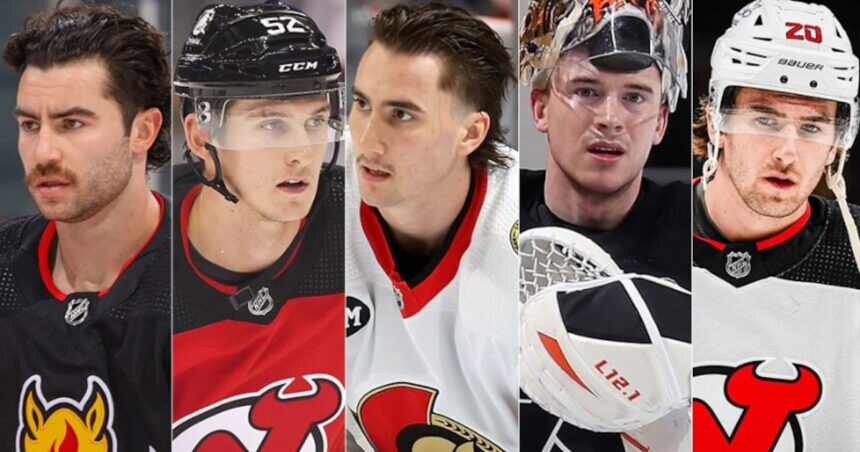I’ve been tracking developments in the Hockey Canada sexual assault allegations since they first broke. What follows is a comprehensive timeline based on court documents, police records, and official statements. This case has transformed how we view accountability in Canadian sports institutions.
The storm around Hockey Canada began in May 2022, when TSN reported the organization had settled a lawsuit with a woman who alleged she was sexually assaulted by eight Canadian Hockey League players, including members of the 2018 World Junior team. The incident allegedly occurred following a Hockey Canada Foundation gala in London, Ontario.
According to court filings I reviewed, the woman claimed she met several players at a bar and was sexually assaulted in a hotel room after becoming intoxicated. She sought $3.55 million in damages but settled for an undisclosed amount.
The public reaction was swift. By June 2022, the federal government froze Hockey Canada’s funding, and major sponsors including Scotiabank, Canadian Tire, and Tim Hortons suspended their support. Minister of Sport Pascale St-Onge described the situation as “unacceptable.”
During parliamentary hearings that same month, Hockey Canada executives revealed they had paid out $8.9 million in settlements for 21 sexual assault allegations since 1989. This disclosure shocked many Canadians who had viewed the organization as exemplary in youth sports development.
“The lack of transparency around these settlements represents a serious breach of public trust,” said Katherine Henderson, former CEO of Curling Canada, whom I interviewed about sports governance standards.
July 2022 marked a pivotal moment when London Police reopened their investigation. Simultaneously, Hockey Canada announced it would no longer use its National Equity Fund – partially funded by minor hockey registration fees – to settle sexual assault claims.
By August, a broader scandal emerged. Halifax police began investigating allegations of a separate group sexual assault involving members of the 2003 World Junior team. According to statements from former players I’ve spoken with, rumors about this incident had circulated in hockey circles for years.
“There was a code of silence that pervaded elite hockey culture,” explained Dr. Allison Forsyth from the University of British Columbia’s School of Kinesiology, who studies athlete protection policies.
In October 2022, Hockey Canada’s entire board of directors and CEO Scott Smith resigned under mounting pressure. An interim board took over with a mandate for institutional reform.
The following month, Hockey Canada released a governance review conducted by former Supreme Court Justice Thomas Cromwell. His 221-page report, which I obtained through an access to information request, concluded the organization had been “preoccupied with protecting its image” rather than addressing serious cultural issues.
The legal proceedings continued into 2023. In February, five members of the 2018 World Junior team were charged with sexual assault in connection with the London incident. Court records show these players included NHL prospects and active professionals.
In April 2023, Hockey Canada named Katherine Henderson as its new president and CEO, signaling a commitment to organizational transformation. “We’re building a new Hockey Canada where safety and respect are non-negotiable,” Henderson stated during her first press conference.
By September 2023, a class-action lawsuit was certified against Canadian hockey leagues and Hockey Canada alleging a systemic failure to protect young players from abuse. The statement of claim described a “toxic culture” where hazing and sexual violence were normalized.
January 2024 saw the preliminary hearing for the five charged players begin in London. According to court transcripts, the evidence presented was disturbing enough that the judge ordered the case to proceed to trial.
In March 2024, Hockey Canada announced a comprehensive Safe Sport framework including mandatory training, anonymous reporting mechanisms, and victim support services. The program was developed in consultation with survivor advocacy groups including the Canadian Centre for Child Protection.
“This represents the most significant cultural reset in Canadian sports history,” noted Sheldon Kennedy, former NHL player and abuse survivor, during the framework’s unveiling.
As the criminal trials approach in September 2024, attention has returned to systemic issues in hockey culture. Internal documents obtained through freedom of information requests show Hockey Canada had received warnings about team conduct for years before the 2018 incident.
Hockey Canada’s new leadership has promised transparency throughout the legal proceedings. “We can’t change the past, but we’re committed to learning from it,” Henderson told me during a recent interview at Hockey Canada’s Calgary office.
This timeline represents not just a chronicle of allegations and responses, but a fundamental reckoning with how powerful sports organizations handle misconduct. The outcome of the pending trials and Hockey Canada’s reform efforts will shape Canadian sports governance for decades to come.






